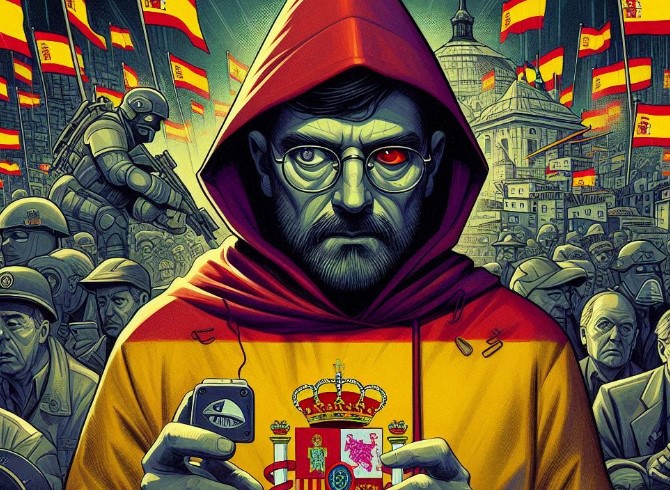A recent survey on the social perception of science in Spain paints a complex picture: while a large proportion of Spaniards acknowledge the value of scientific research, a surprising number harbor doubts about established scientific findings. The latest survey by the Spanish Foundation for Science and Technology (Fecyt) for 2024 indicates that 40% of Spaniards believe in conspiracy theories. This reveals a deep skepticism towards scientific evidence and the scope of scientific knowledge, with far-reaching implications for society.
Conspiracy Theories on the Rise: A Critical Analysis of the Numbers
Although the denial of scientific knowledge in Spain is considered a fringe phenomenon at 11%, worrying beliefs are hidden behind this figure. The survey results speak a clear language:
- 49% of respondents are convinced that pharmaceutical companies hide the dangers of vaccines.
- 41% believe that viruses were created in state laboratories to control citizens’ freedom.
- 36% are of the opinion that a cure for cancer exists but is suppressed by governments for commercial interests.
- 27% doubt human evolution from other species.
- 23% suspect a government conspiracy to conceal the link between vaccines and autism.
These figures show that deep-seated distrust of institutions and scientific narratives is entrenched in large parts of the Spanish population.
Limits of Science? Religious and Philosophical Questions Remain Open
Another interesting aspect of the survey is the perception of the limits of scientific knowledge. More than half of the population (56%) doubts that science will ever answer all of humanity’s questions. This particularly concerns philosophical, ethical, or emotional dimensions of reality that elude empirical logic. Questions about God or an afterlife are striking examples.
Nevertheless, there is broad recognition of the value of science for social progress. Especially in research for disease control or improving the quality of life, positive opinions prevail (71% and 55% respectively).
Trust in Scientists – But with Reservations
Trust in scientists is very high at 86%, and 61% see them as experts who conduct research in the common interest. However, the survey also reveals a critical attitude: 57% of respondents believe that those who finance research can influence scientists to reach conclusions that suit them. This underlines the need for transparency and independence in research.
Internet as an Information Source and the Challenges of Science Communication
The use of digital media and social networks as information sources has become established among young people, while traditional media continue to play an important role. However, interest in scientific information remains low at 13.2%. In addition, 66% of respondents find the scientific information received superficial, incomprehensible (25%), and even insufficient (80%). This highlights a significant disconnect between society and science and underscores the urgency of more effective science communication.
Artificial Intelligence: Between Optimism and Fears
In the field of Artificial Intelligence (AI), a mixed picture emerges. While young people are most optimistic about AI, seven out of ten Spaniards fear that AI could completely take over their jobs in the next ten years. Concerns about the security of personal data (42%) and excessive trust in AI (33%) are widespread, although eight out of ten state that they use AI in their daily lives. The fear that AI could help governments gain more control over the population is also present.
On the positive side, 69% of Spaniards see benefits in facial recognition for surveillance and border control, as well as virtual voice assistants. However, skepticism prevails for content recommendation algorithms (42%), where more harm than benefit is perceived. This indicates a significant need for education and ambivalence towards these new technologies.




